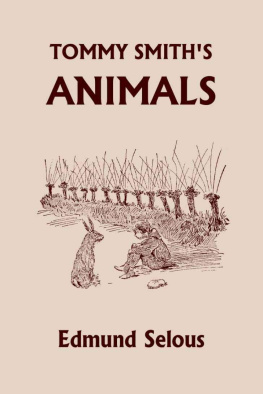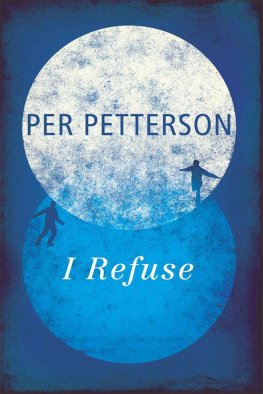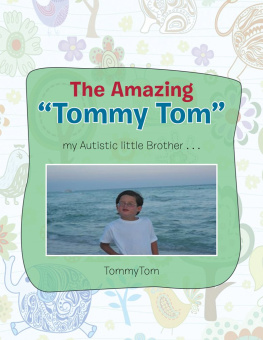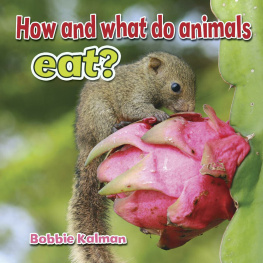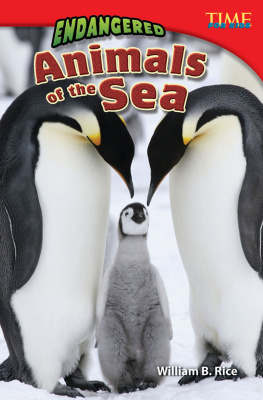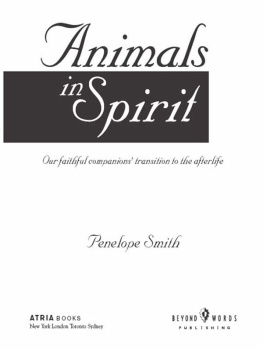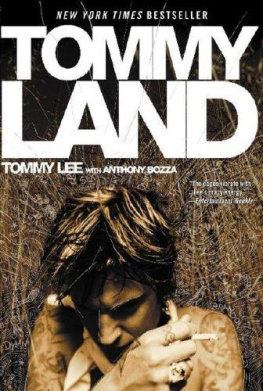Tommy Smith's Animals
by
Edmund Selous
Yesterday's Classics
Chapel Hill, North Carolina
Cover and Arrangement 2010 Yesterday's Classics, LLC
All rights reserved. No part of this book may be reproduced or retransmitted in any form or by any means without the written permission of the publisher.
This edition, first published in 2010 by Yesterday's Classics, an imprint of Yesterday's Classics, LLC, is an unabridged republication of the work originally published by Methuen & Co. Ltd. in 1899. This title is available in a print edition (ISBN 978-1-59915-376-6).
Yesterday's Classics, LLC
PO Box 3418
Chapel Hill, NC 27515
Yesterday's Classics
Yesterday's Classics republishes classic books for children from the golden age of children's literature, the era from 1880 to 1920. Many of our titles are offered in high-quality paperback editions, with text cast in modern easy-to-read type for today's readers. The illustrations from the original volumes are included except in those few cases where the quality of the original images is too low to make their reproduction feasible. Unless specified otherwise, color illustrations in the original volumes are rendered in black and white in our print editions.
Contents
CHAPTER I
The Meeting
"The owl calls a meeting, and has an idea:
They all think it good, though it SOUNDS rather queer."
T HERE was once a little boy, named Tommy Smith, who was very cruel to animals, because nobody had taught him that it was wrong to be so. He would throw stones at the birds as they sat in the trees or hedges; and if he did not hit them, that was only because they were too quick for him, and flew away as soon as they saw the stone coming. But he always meant to hit themyes, and to kill them too,which made it every bit as bad as if he really had killed them. Then, if he saw a rat, he would make his dog run after it, and if the poor thing tried to escape by running down a hole, he and the dog together would dig it out, and then the dog would bite it with his sharp teeth until it was quite dead. It never seemed to occur to this boy that the poor rat had done him no harm, and that it might be the father or mother of some little baby rats, who would now die of hunger. Even if the rat got away, he would whip the dog for not catching it, yet the dog had done his best; for, of course, dogs must do what their masters tell them, and cannot know any better. It was just the same with hares or rabbits, squirrels, rooks, or partridges. Indeed, this boy could not see any animal playing about, and doing no harm, without trying to frighten it or to hurt it.
When the spring came, and the birds began to build their nests, and to lay their pretty eggs in them, then it is dreadful to think how cruel this Tommy Smith was. He would look about amongst the trees and bushes, and when he had found a nest, he would take all the eggs that were in it, and not leave even one for the poor mother bird to sit on when she came back. Indeed, he would often tear down the nest too, after he had taken the eggs. Perhaps you will wonder what he did with these eggs. Well, when he had brought them home and shown them to his father and mother, who never thought of scolding him, or to his little brothers and sisters (for he was the eldest of the family), he would throw them away, and think no more about them. If he had left them in the nest, then out of each pretty little egg would have come a pretty little bird. But now, for every egg he had taken away, there was one bird less to sing in the woods in the spring and summer.
At last this boy became such a nuisance to all the animals round about, that they determined to punish him in some way or other. They thought the first thing to do was for all of them to meet together and have a good talk about it. In a wood, not far off, there was a nice open space where the ground was smooth and covered with moss. Here they all agreed to come one fine night, for they thought it would be nice and quiet then, and that nobody would disturb them, as, perhaps, they might do in the daytime.
So, as soon as the moon rose, they began to assemble, and I wish you could have been there too, to see them all come, sometimes one at a time, and sometimes two or three together.
The rat was one of the first to arrive, and then came the hare and the rabbit arm in arm, for they knew each other well, and were very good friends. The frog was late, for he had had a good way to hop from the nearest pond, where he lived, so that his cousin, the toad, who was slower, but lived nearer, got there before him. The snake had no need to make a journey at all, for he lived under a bush just on the edge of the open space. All the little birds, too, had gone to roost in the trees and bushes close by, so as to be ready in good time; and, when the moon rose, they drew out their heads from under their wings, and were wide awake in a moment. The rook and the partridge, and other large birds, were there as well, and the squirrel sat with his tail over his head, on the branch of a small fir tree. Then there were weasels, and lizards, and hedgehogs, and slow-worms, and many other animals besides.
In fact, if you had seen them all together, you would have wondered how one little boy could have found time to plague and worry so many different creatures. But you must remember that even a very little boy can do a great deal of mischief. Perhaps there were some animals there that little Tommy Smith had not hurt, because he had not yet seen them, but these came because they knew he would hurt them as soon as he could; and, besides, they were angry because their friends and companions had been ill-treated by him.
At last it seemed as if there was nobody else to come, and that everything was ready. Still, they seemed waiting for something, and all at once a great owl came swooping down, and settled on a large mole-hill which was just in the middle of the open space. Now, the owl, as perhaps you know, is a very wise bird, and, for this reason, all the other animals had chosen him to be the chief at their meeting, and to decide what was best to be done, in case they should not agree amongst themselves. He at once showed how wise he was, by saying that before he gave his own opinion he would hear what everybody else had to say. Then everybody began to talk at once, and there was a great hubbub, until the owl said that only one should speak at a time, and that the hare had better begin, because he was the largest of all the animals there.
So the hare stood up, and said he thought the best way to punish Tommy Smith was for every one of them to do him what harm he could. For his part, he was only a timid animal, and not at all accustomed to hurt people. Still, he had very sharp teeth, and he thought he might be able to jump as high as Tommy Smith's face and give him a good bite on the cheek or ear, and then run off so quickly that nobody could catch him. The rabbit spoke next, and said that he was just as timid as the hare, and not so strong or so swift. All he could do was to go on digging holes, and he hoped that some day Tommy Smith would fall into one of them. The hedgehog then got up, and said he would hide himself in one of these holes and put up his prickles for Tommy Smith to fall on. This would be sure to hurt him, and perhaps it might even put one of his eyes out. The rat thought it would be better if the hedgehog were to get into Tommy Smith's bed, so as to prick him all over when he was undressed; but the hedgehog would not agree to this, as he did not understand houses, and thought he would be sure to be caught if he went into one.

